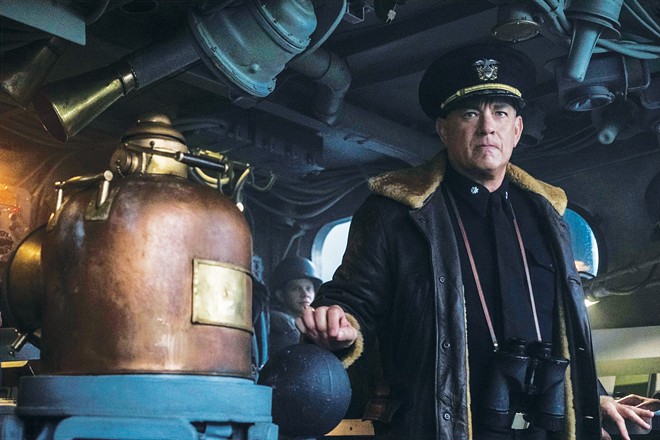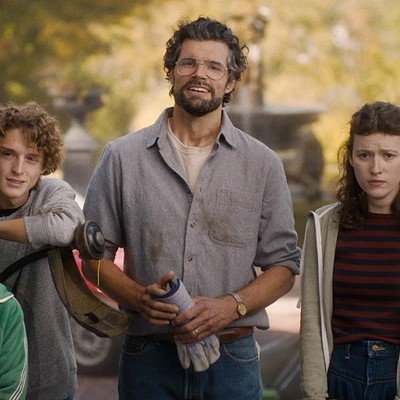I had hoped Aaron Schneider's Greyhound would be a thrilling World War II epic, buoyed by strong performances, rich production values and the best modern special effects to bring this seagoing battle film to life. I wasn't disappointed on any of these counts. But what I hadn't anticipated was that the film would have me longing and envious for not having experienced a seemingly simpler time populated by morally honorable men who were able to put their differences aside in order to unite against a common threat.
Set in early 1942, Commander Ernest Krause (Tom Hanks) has been assigned an unenviable task; he is to shepherd a convoy of ships across the North Atlantic which contain vital supplies necessary for the growing Allied war effort. Nearly 100 seacraft are his responsibility, and he faces an array of dire challenges. The weather is bitter, cold and cruel; they are being pursued by a small, dogged group of Nazi U-boats and there is a 50-hour period in which they will be stuck in the Black Pit, a remote stretch of the ocean where the convoy will be at its most vulnerable without air cover. That this is Krause's first crossing seems a minor consideration in light of all the other challenges.
The script, adapted by Hanks from the novel The Good Shepherd by C.S. Forester, is lean and straightforward, reflective of the films from the World War II era in that it wastes little time in setting up the basic premise, introducing the characters and rapidly progressing from one dire event to the next, relentlessly increasing the tension as the stakes rise. Schneider does a masterful job of steadily building the suspense throughout, taking a page from the Steven Spielberg playbook where the primary threat of the film is concerned. The presence of the Nazi U-boats is initially suggested, then quick glimpses of them are seen before they emerge violently from the sea to do battle with Krause and his beleaguered crew. It's a remarkably effective approach that, coupled with crisply rendered computer generated effects, drives home the peril these men are in, not simply because they are doing battle, but because of the remote nature of the conflict.
Of course, it comes as no surprise that Hanks delivers a solid performance. He's built a career on portraying morally sound men able to deal with crisis with an unwavering sense of purpose. Yet, it's his ability to genuinely convey the humanity of these men that's made him one of our most reliable and appealing actors of his generation. Thanks to Hanks' ability to convincingly create feelings of doubt and fear, the moments in which Krause experiences these emotions are palpable, allowing the viewer to see him as a man prone to the same uncertainties that plague us all.
And while the film is a masterful piece of historical fiction, it also proves to be a melancholy look back at a bygone era that seems more and more distant with every passing day. Much has been made of the Greatest Generation, those who found the fortitude to fight and live through World War II both on the frontlines and the home front. To be sure, a great deal of romanticism has been employed in creating the myth that has sprung up regarding this era. And yet, there is a kernel of truth in the notion that it is possible for this country's citizenry to unite to solve the problems that plague us. The most powerful and radical thing about Greyhound is its commitment to keeping this notion alive, a belief that's becoming more endangered with each passing day.


















